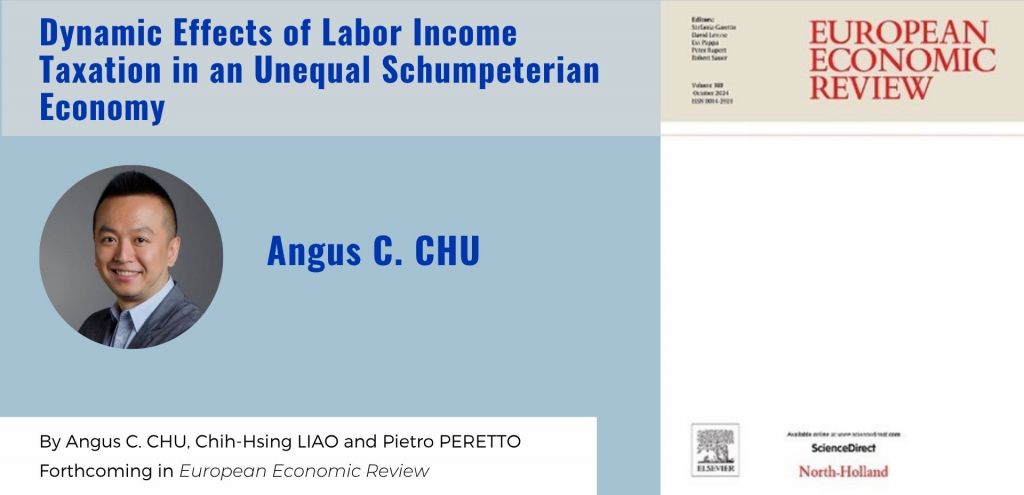
Dynamic Effects of Labor Income Taxation in an Unequal Schumpeterian Economy
By Angus C. CHU, Chih-Hsing LIAO and Pietro PERETTO
Forthcoming in European Economics Review
Abstract:
How does taxation affect growth and inequality? To study this question, we develop a Schumpeterian model in which wealth heterogeneity influences the effects of tax policy. The key mechanism is that a change in consumption dispersion across heterogeneous households due to a change in labor income taxation can cause a novel positive effect on the employment of poor households in addition to the usual negative effect on the employment of rich households. Together, these effects yield an overall ambiguous response of employment to labor income taxation. A negative (positive) change of employment causes a negative (positive) change of innovation-driven growth in the short run and also a negative (positive) change of the real interest rate. Consequently, labor income taxation has an ambiguous effect on income inequality (e.g., asset income falls while labor income may rise) but unambiguously increases consumption inequality by reducing disposable wage income even for households that work more. Therefore, the effects on income inequality and consumption inequality are drastically different. We calibrate the model to examine its quantitative implications.
